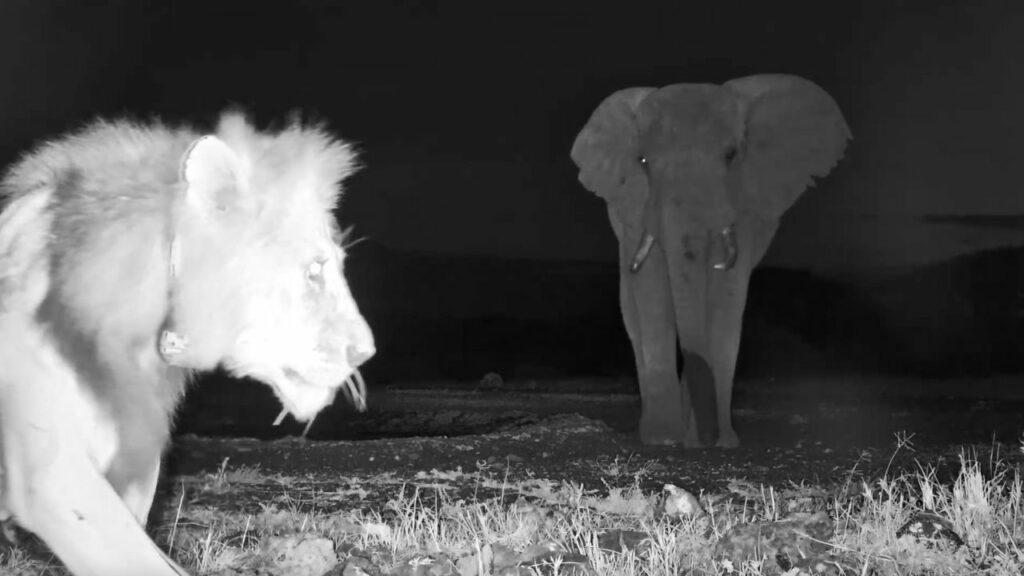
Elephants are very protective over their water, and especially their waterholes. They don’t like to share, and in most cases will chase away any animal who thinks they can. This is a hilarious look into elephants chasing animals from the waterhole, trumpeting and running, throwing water and mud everywhere.
We have captured some incredible video clips from our live streams from locations in South Africa and Kenya. Elephants showing their dislike for other animals stealing their water.

African elephants are reliant on water; large adults may drink as much as 225 L of water per day, they are also quite picky about the water they drink and, in times of drought, will prefer to dig for water in dry riverbeds than drink muddy water. An elephant’s trunk may hold as much as 10 L of water. Water is not only a necessary bodily requirement, it is also a source of fun; elephants love to play and swim in water, often splashing themselves to cool down. When it is very hot, elephants wet their bodies then proceed to dust bathe which cakes their bodies with mud, this mud cools them and acts as sun protection. In addition, the mud acts as an exfoliator that pulls off parasites; when the mud dries elephants rub themselves against trees to pull off the dried mud and any unwelcome visitors.
African elephants have complex means of communication. Vocally, elephants communicate within our human hearing range with audible rumbles, growls, trumpets, screams and squeals, as well as infrasonically (below 20 hertz) which is outside our hearing range.

When agitated, an elephant will display using its body to communicate the agitation. The tail stiffens, head is held high and ears open to display an impressive stance meant to serve as a warning and to intimidate. This stance may result in the animal running away or turning to face the disturbance and shaking its head. This warning should not be taken lightly and it is best to move away when this happens.





